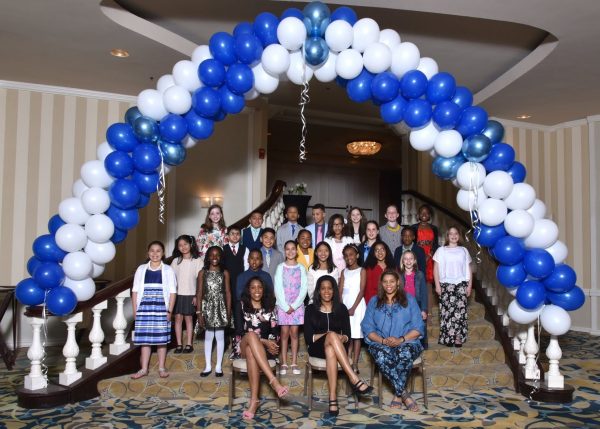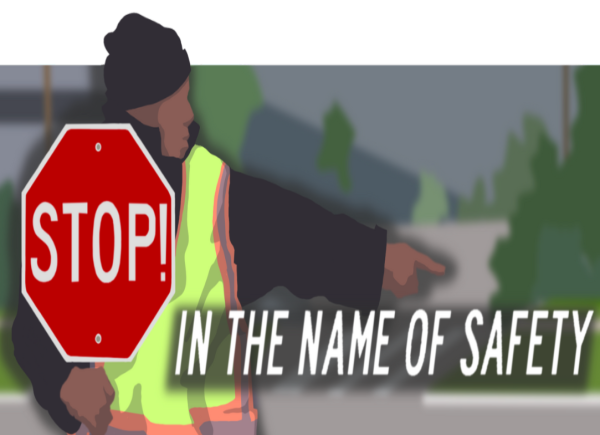Black female athletes reshape mental health conversation
Reflecting on the Tokyo 2020 Olympics, it is important to evaluate the mental health stigma that exists for Black female-identifying athletes. With the Tokyo Olympics and other past summer sports tournaments, the media and viewers have seen more Black female athletes coming forward and taking matters into their own hands when it comes to mental health and overall wellbeing.
On July 27, gymnast Simone Biles withdrew from the women’s gymnastics team final, an event in the 2021 Tokyo Olympics. The immediate American response was disappointment in Biles and calling her “weak” for “jeopardizing the country and their chances of winning.” With a combined total of 31 Olympic and world championship medals, the 4’8” 24-year-old Biles is one of the most decorated and greatest gymnasts of all time. Biles is a two-time Olympian and is a six-time Olympic medalist with four golds, one silver and one bronze medal. Biles is such an icon in the gymnastics world that she has multiple moves named after her.
According to a Vogue article, Biles commented, “ I just think mental health is more prevalent in sports right now… We have to protect our minds and our bodies and not just go out and do what the world wants us to do… We are not just athletes; we’re people at the end of the day, and sometimes you just have to step back.”
After stepping back, I personally applauded Biles and her decision to prioritize her mental health, especially with her accomplishments, being on a national stage and being a Black woman.
Three weeks after the Rio summer Olympics in 2016, allegations from gymnasts involved in USA Gymnastics became public. These were sexual assault allegations against the USA Gymnastics team doctor for 18 years, Larry Nassar. Nassar had abused multiple gymnasts over the years. More than 140 individuals came forward as victims, including Biles, as well as Olympians Aly Raisman and Gabby Douglas. Nassar has now been titled an American convicted sexual offender and pleaded guilty to multiple sexual assault charges against gymnasts as young as teenagers.
Biles was a continuing victim of abuse from Nassar and is currently the only gymnast who disclosed abuse and continued to compete on the elite level.
One can only imagine the mental and physical toll it takes to continue and overcome the trauma in every meet and competition, especially when competing under an organization that failed to protect its gymnasts and continues to refuse responsibility for the abuse. The same organization that benefits from Biles’ success, judges and scores every meet that determines the long-lasting success of a gymnast also enabled years of abuse.
The trauma Biles has faced as a part of USA Gymnastics makes Biles’ success that much more impressive. Biles has persevered even while identifying as a Black woman in a sport where black people are misrepresented and undermined.
According to the same Vogue article, Biles was struggling as she continued to do the sport she loved because of delayed acknowledgment of being a victim and the mental instability that followed.
“…I remember on tour, I would have really bad anxiety about nothing. Or like, walking down a hall, I feared that somebody was following me. I just had a lot of issues that were unexplained until I finally figured out why,” Biles explained.
While going through personal struggles, Biles continued to work under USA Gymnastics and tried to get the organization to take responsibility for the trauma she and her fellow gymnasts received for at least two years.
As I continue to research, my appreciation for Simone Biles as an athlete and as a person has significantly increased. In 2018, Simone Biles competed in the World Championships with kidney stones. According to CNN, she went to the hospital, found out she had kidney stones then went back to compete despite the pain. And after taking a few days off of the Olympics, she returned and managed to win a bronze medal on beam. After the criticism she faced and with even more pressure, Simone Biles, one of the greatest athletes of all time, competed on the Olympic stage and won bronze.
Biles is just one example of a Black female athlete that has faced hate and criticism when prioritizing mental health.
Annet Corbin, a hall of fame former ETHS and Purdue soccer player, is currently a fitness mentor and focuses on yoga, mindset coaching and habit tracking. Corbin is a co-founder and the Director of Training of The Athlete Practice, which specializes in “Training athletes with yoga.” “Being an athlete has been a role of privilege. Early on, I understood that I was treated differently because (in general) people hold athletes to a higher regard. Even to this day, I get treated differently,” Corbin explains. “Everyone is shocked when I walk into the room. No one expects a Black yoga teacher. At the end of the day, it just makes me better, because I work harder to represent my community and my family well. I know that when I walk into a room it’s not just me, it’s all of us. And I take that as yet another privilege.”
Corbin explains her takeaways from the events this summer.
“All the challenges I faced coming up as a Black woman playing soccer are still here! And that’s not okay. It’s time for all of us former athletes to step it up and give these athletes some tools to better handle what it’s really like at the top. All of this drove me to re-evaluate how I work with athletes. Prior to this summer, I was just teaching your standard yoga class—some poses, some breathing. Then all of these events, and some personal encounters, told me it was time to do more,” Corbin says. “I wanted to give these athletes the same tools I learned over the years as a professional soccer player and all the things I’d learned in yoga but never taught. I created a training program that deals with not just the physical but the mental aspect of sports as well. And the response has been amazing. It feels big and important, and this summer has changed my everything.”
When we continue to watch and support athletes, it is important to value and support the mental health of all athletes, especially those who identify as Black females.
Brealyn Viamille, ETHS senior, has been playing on the ETHS girls varsity soccer team for three years.
“Being a black woman definitely makes me stand out in the field. There is a stereotype that, if there is a black girl playing soccer, most likely the only thing she can do is run fast, so to break that stereotype and be more than just fast, by showcasing my skill on the field, is really empowering,” Viamille says.
In terms of mental health for Black female-identifying athletes, Viamille believes that conversations are important when trying to end the stigma.
“I would love to work with other Black athletes and also encourage Black girls to play soccer or a sport they are interested in. Not just to play, but to push them to be the best they can be or one of the best on the national stage if they wished,” Viamille explains.
“I feel that mental health is downplayed in the Black community, and I think that just starting a conversation about it will open up a lot of minds. I think being an athlete can be stressful enough, but being Black and a woman can and will put you at a disadvantage compared to other athletes, and that can take a toll on your mind too,” Viamille says. “I’ve been in those situations. So I think just starting conversations is something I can do to help girls that look like me to be aware of what can be going on within themselves.”
Your donation will support the student journalists of the Evanstonian. We are planning a big trip to the Journalism Educators Association conference in Philadelphia in November 2023, and any support will go towards making that trip a reality. Contributions will appear as a charge from SNOSite. Donations are NOT tax-deductible.










